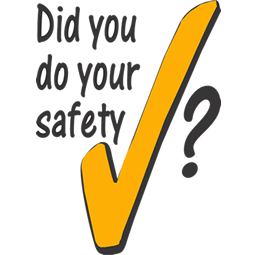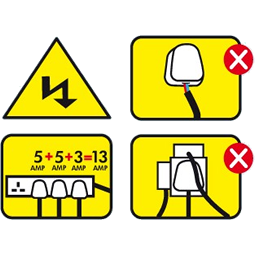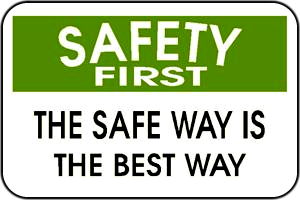Safety Is Our First Priority

Tropical Electric is known throughout the construction industry for its Quality Assurance and Quality Control. We extend those ideals to Safety Awareness and Accident Prevention. We have several safety programs we administer to our employees such as Hurricane Preparedness, Site-specific safety plans and pre-employment as well as random drug screenings to ensure our employees are working efficiently and safely at all times. As a company with no (zero) recorded accidents to OSHA, we make safety our first priority!
Safety is everyone's business. It means that everyone has a part to play in creating a safe work place. We instill in our employees that by their example and leadership, others will see that safety is part of our full time commitment to quality. For their protection and that of their fellow workers, we ask that they THINK, TALK, and ACT SAFELY in the performance of every task they perform.

Each year, electrical accidents kill over a thousand people and injure tens of thousands more. Most, if not all, of these could have been avoided by correcting and updating potential electrical hazards. Don't wait until trouble arises to find the problems. By using this electrical safety checklist, you'll be able to determine potential problems before they arise.
Electrical hazards can cause burns, shocks and electrocution (possibly fatal).
 |
- Assume that all overhead wires are energized at lethal voltages. Never assume that a wire is safe to touch even if it is down or appears to be insulated.
- Never touch a fallen overhead power line. Call the electric utility company to report fallen electrical lines.
- Stay at least 10 feet (3 meters) away from overhead wires during cleanup and other activities. If working at heights or handling long objects, survey the area before starting work for the presence of overhead wires.
- If an overhead wire falls across your vehicle while you are driving, stay inside the vehicle and continue to drive away from the line. If the engine stalls, do not leave your vehicle. Warn people not to touch the vehicle or the wire. Call or ask someone to call the local electric utility company and emergency services.
|
 |
- Never operate electrical equipment while you are standing in water.
- Never repair electrical cords or equipment unless qualified and authorized.
- Have a qualified electrician inspect electrical equipment that has gotten wet before energizing it.
- If working in damp locations, inspect electric cords and equipment to ensure that they are in good condition and free of defects, and use a ground-fault circuit interrupter (GFCI).
- Always use caution when working near electricity.
|





